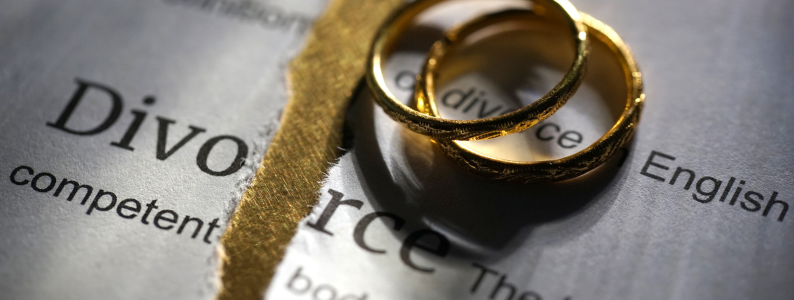Best Illinois Divorce Lawyer 2026
Divorce is one of life’s most significant transitions. Beyond the emotional toll, the legal choices made early in a divorce can determine financial security, property division, and the future of co-parenting arrangements.
Finding the best Illinois divorce lawyer can be critical in helping protect your rights and achieving favorable outcomes. Masters Law Group brings decades of experience, deep knowledge in complex family law matters, and a client-first approach that has made them a trusted choice for families throughout Illinois.
Whether you are facing high-net-worth asset division, a relocation dispute, or international custody issues, this guide will explain why Masters Law Group should be on your shortlist.
What “Best” Really Means in Illinois Divorce Law
When searching for the “best” divorce lawyer, it’s important to understand that the title is subjective. The “best” attorney is one who aligns with your case’s complexity and your personal priorities. A top Illinois divorce lawyer demonstrates:
- Family-Law Experience: Handling custody, support, and property division is a baseline, but true expertise shines in high-stakes or unusual cases.
- Expertise with Complex Assets: Business ownership, retirement accounts, and hidden or digital assets require precision and forensic investigation.
- Courtroom and Negotiation Skills: Settlements are ideal, but when disputes escalate, your lawyer must be trial-ready.
- Knowledge of Evolving Law: Laws change, and judges update procedures. A 2026 divorce lawyer understands the latest statutory amendments and county-specific rules.
- Client-Centered Communication: Compassion, transparency, and proactive updates reduce stress and help clients make informed decisions.
Masters Law Group embodies all these qualities. With offices in Chicago, Oak Brook, and La Jolla, their attorneys combine localized knowledge with national reach for complex cases.
Understanding Key Changes in Illinois Family Law for 2026
Family law is dynamic, and staying current is critical. Recent updates affect parental relocation, custody evaluations, and financial disclosure requirements.
Parental Relocation
Illinois law now emphasizes the surface-road route distance when evaluating relocation requests and imposes county-specific mileage thresholds. These rules affect whether a custodial parent can move with a child, and how parenting time schedules are adjusted. A lawyer familiar with these updates can help ensure your case is presented in line with the latest standards.
Parenting Plan Considerations
Courts increasingly prioritize structured parenting plans that emphasize the child’s best interests. This includes detailed schedules, dispute-resolution procedures, and contingency plans for holidays or relocation. Masters Law Group guides clients through evidence gathering and court presentations to support these plans.
Financial Disclosures
Illinois courts are requiring more detailed financial disclosure, particularly in high-net-worth or complex cases. Attorneys must advise clients on preparing documentation for bank accounts, business valuations, investments, and retirement assets to prevent disputes or allegations of concealment.
Masters Law Group’s Approach to Complex Family Law
Masters Law Group distinguishes itself by combining strategic planning, niche knowledge, and client-focused service. Their approach is designed to handle both routine and highly complex cases.
Early Case Assessment
The firm conducts an in-depth review at the outset, identifying risk factors like:
- Hidden or undervalued assets
- Urgent custody concerns
- International jurisdiction or cross-border issues
- Business valuation or retirement account complexities
This early triage helps craft a plan that balances negotiation, settlement, and litigation options.
Team-Based Representation
Divorce often requires multiple specialists. Masters Law Group provides a team approach, combining:
- Family-law attorneys
- Forensic accountants
- Child custody evaluators
- International law experts
This helps ensure no detail is overlooked, particularly in cases involving complex property division or international custody disputes.
Litigation and Alternative Dispute Resolution
While many cases settle, litigation is sometimes necessary. Masters balances court readiness with negotiation and mediation strategies, helping ensure clients are prepared for every outcome.
Niche Skillsets
Masters Law Group is known for handling Hague Convention cases, international child abduction, and other multi-jurisdictional disputes. This expertise is invaluable when a child is taken abroad or when multiple states’ laws could apply.
Common Divorce Issues and How Masters Handles Them
Allocation of Parental Responsibilities
Child-focused advocacy is a cornerstone of Masters Law Group. They assist clients in:
- Developing parenting plans aligned with the child’s best interests
- Negotiating parenting plan schedules that accommodate work, school, and extracurricular activities
- Addressing complex cases involving relocation or international custody
Relocation Cases
When a parent wishes to move, Illinois courts require careful documentation and strategy. Masters guides clients through:
- Demonstrating the reasons for relocation
- Proposing practical parenting schedules
- Presenting compelling arguments to the court that maintain the child’s best interests
Property Division and Hidden Assets
High-net-worth divorces require uncovering and valuing all assets. Masters collaborates with forensic accountants and valuation experts to:
- Ensure equitable property division
- Identify hidden or undisclosed assets
- Protect retirement accounts, investment portfolios, and business interests
Spousal Support/Maintenance
Masters evaluates spousal support based on:
- Length of marriage
- Income disparities
- Standard of living during the marriage
- Tax implications
They aim to negotiate fair and sustainable arrangements while minimizing long-term financial risk.
International Cases and Treaty Work
For clients facing cross-border custody or abduction issues, Masters:
- Files Hague Convention petitions promptly
- Coordinates with foreign counsel
- Advises on ICARA compliance and U.S. court jurisdiction
This can help reduce delays and maximize legal protections in complex international matters.
The Client Experience: What to Expect
A top Illinois divorce lawyer provides more than legal guidance — they provide a structured, supportive process. Masters Law Group clients can expect:
- Initial Consultation: Clear explanation of options, likely outcomes, and required documentation.
- Written Engagement Letter: Transparent outline of fees, billing, and responsibilities.
- Regular Updates: Case milestones, discovery requirements, and potential settlement windows.
- Strategic Guidance: Identifying settlement levers, priorities, and must-have outcomes.
- Clear Communication: Plain-language explanations of legal issues, strategies, and court proceedings.
Practical Checklist: Choosing Your Illinois Divorce Lawyer
- Skillsets Matter: Confirm the attorney focuses primarily on family law.
- Experience in Similar Cases: Ask for examples or references in cases like yours.
- Direct Lawyer Contact: Clarify whether you’ll work with the attorney directly or an associate.
- Network and Resources: Ensure the firm has access to experts, evaluators, and local counsel.
- Local Court Knowledge: Familiarity with judges and county-specific rules can be critical.
Masters Law Group meets these criteria with offices across Illinois, dedicated family-law attorneys, and a proven track record with complex cases.
Why Masters Law Group Is a Leading Choice in 2026
If your divorce involves:
- High-value assets
- Relocation disputes
- International custody or Hague Convention issues
Masters Law Group offers:
- Family-law experience in Illinois and nationwide
- Multi-office accessibility in Chicago, Oak Brook, and La Jolla
- Dedicated resources for complex litigation and negotiation
- Award-winning recognition for excellence in family law, mediation, and international custody
This year has been a remarkable one for Masters Law Group. From courtroom advocacy to client care, our dedication to excellence in family and divorce law continues to earn recognition across the legal community.
We are proud to share the distinguished honors our firm and attorneys have received throughout 2025 and into 2026, each reflecting our commitment to delivering exceptional legal service and compassionate guidance:
Masters Law Group Honored in The Best Lawyers in America® 2025
Masters Law Group is recognized in the 31st edition of The Best Lawyers in America® 2025 with regional rankings in Family Law and Family Law Mediation. Millions of peer evaluations are reviewed each year, and this distinction reflects the firm’s integrity, skill, and exceptional client service.
Partners Erin E. Masters and Anthony G. Joseph are highlighted for their leadership in family law, mediation, and international child abduction matters, demonstrating a commitment to guiding clients through complex family transitions with strategic advocacy.
Recognized in the 2026 Best Law Firms® Rankings
Masters Law Group is honored in the 2026 Best Law Firms® rankings, a respected guide identifying top-performing legal practices nationwide. This recognition underscores our consistent results and trusted reputation in Family Law, Domestic Relations, and Hague Convention cases, backed by client feedback and peer review.
32nd Edition of The Best Lawyers in America®
Both Erin E. Masters and Anthony G. Joseph are recognized for outstanding work in Family Law and Family Law Mediation, an honor reserved for only the top 5 percent of attorneys nationwide. This recognition emphasizes the respect our attorneys have earned among peers and highlights leadership in advancing fair, effective solutions for families.
Illinois Super Lawyers®
- Erin E. Masters: Named to the Illinois Super Lawyers list for the sixth consecutive year, highlighting her consistent excellence, client-focused approach, and expertise in divorce, mediation, and parental responsibility matters.
- Anthony G. Joseph: Selected as a 2026 Illinois Super Lawyer, marking his leadership in complex family law and international custody litigation. His work in Hague Convention matters, cross-border disputes, and high-conflict cases continues to distinguish him as a dedicated advocate for families.
Together, Erin and Anthony exemplify the skill, compassion, and professionalism that define Masters Law Group.
Top 50 Women Lawyers in Illinois
Erin E. Masters has been recognized for the second consecutive year on the Top 50 Women Lawyers in Illinois list by Super Lawyers®. This honor reflects her leadership in family law and her ability to combine strategic advocacy with compassion in even the most complex cases.
Top 100 Lawyers in Illinois for 2026
Erin E. Masters was also named to the Top 100 Lawyers in Illinois for 2026 by Super Lawyers®, a prestigious first-time recognition reserved for the state’s most accomplished attorneys. This reflects her exceptional work in family law, commitment to client-focused representation, and leadership both in and outside the courtroom.
Next Steps
- Gather Documents: Pay stubs, tax returns, bank statements, deeds, retirement accounts, and communications related to custody.
- Schedule a Consultation: Discuss case strategy, fees, and team assignments.
- Ask the Right Questions: Confirm experience, references, and timelines.
- Clarify Priorities: Determine your must-haves for custody, property, and financial arrangements.
Divorce is challenging, but with the right team, you can navigate it confidently. Masters Law Group provides knowledge, guidance, and advocacy at every step of the process.
Schedule a complimentary consultation at masters-lawgroup.com.
Frequently Asked Questions
Q: Do I need a lawyer for mediation?
A: Legally, no, but an attorney helps ensure agreements are enforceable and protects your long-term interests.
Q: What if my spouse hides assets?
A: Experienced attorneys immediately deploy forensic accountants, subpoenas, and discovery methods to uncover hidden assets.
Q: My child was taken abroad — what should I do?
A: Hague Convention procedures and ICARA petitions apply. Masters Law Group has handled urgent international custody cases and can coordinate with foreign legal systems to recover custody.
Q: Can a divorce attorney help with tax implications?
A: Yes. Proper legal guidance helps ensure property division, spousal support, and settlements minimize tax exposure and comply with IRS rules.
Disclaimer: This blog is for informational purposes only and does not constitute legal advice. Please consult a qualified attorney regarding your specific circumstances.



























